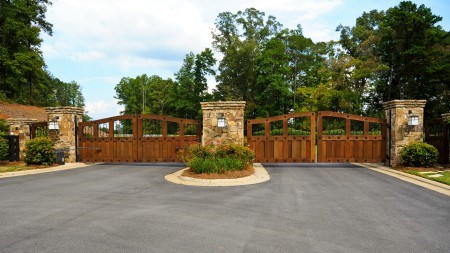Living in gated communities and estates has become a growing trend in South Africa. This type of lifestyle offers security, hassle-free living and the type of community where everyone knows their neighbour by name. Many estates also provide the opportunity for residents to enjoy communal amenities such as a club house, swimming pool, tennis courts, gym and children’s play areas. Some estates are positioned on a golf course, others have mountain biking trails and some are equestrian. Participation in sports and recreational activities adds significantly to the lifestyle on offer as well as the demand for properties in these estates.
Craig Hutchison, CEO of Engel & Völkers southern Africa, explains that for investors and home buyers, the ‘community living’ lifestyle is attractive. But in order for estates to work properly, where residents are content and property prices remain stable, or better still appreciate, they need to be well managed.
“Living in a well-run estate can be bliss, but the opposite also holds true. It is immediately evident if an estate isn’t properly managed – the gardens within communal areas aren’t properly cared for, general maintenance is lacking, cars are parked where they should not be and the like,” says Hutchison.
For complexes to be well managed, it is beneficial for home-owners to understand what it entails and who the responsibility falls on. Below are the outlines of the two types of schemes pertaining to complex rules.
Full Title and Sectional Title Management
The way a residential community is managed depends on whether the homes are full title (free-standing or free-hold) or sectional title. Full title means that an owner has full ownership rights to the building and the land it is built on and refers to free-standing houses, cluster houses and small-holdings.
Sectional title refers to separate ownership of units within a complex or development. When you buy within a sectional title development, you purchase a unit together with shared ownership of the common property. Sectional title properties include townhouses, flats, semi-detached houses and duet houses.
As such, different rules and regulations apply to full title and sectional title properties.
See more: Understanding your rights to common property in sectional titles
Full Title property and Home Owner’s Association
Full title homes in estates fall under the rules and regulations of a Home Owners Association (HOA). Estate residents who own property in the complex are elected on to an HOA board of trustees. The board is responsible for making sure that the rules and regulations agreed upon by the residents are adhered to. Usually these leaders are elected because of their abilities and time capacity. For example, it is beneficial to have someone who understands property law to be part of the HOA board, as well as an accountant, an architect, landscaper and someone who works within the relevant municipality.
People who are retired also offer valuable expertise as they have the knowledge, the time and the interest in maintaining standards within the estate. Having the right people lead the HOA will hugely benefit the entire estate community.
Sectional Title property and Body Corporate
When living in a sectional title unit within a complex, the governing body is the Body Corporate (BC). All registered unit owners within the complex are members of the BC. The BC is responsible for managing the scheme and taking care of its finances. The members elect trustees who ensure that the daily running of the complex is carried out. Also, when the buildings need painting and walkways need to be repaved, it is the responsibility of the trustees to manage the implementation of the project, on behalf of all owners.
A managing agent is often appointed to take care of the duties of an HOA and BC. Duties include ensuring compliance with the relevant Acts, collection of monthly levies, paying the scheme’s insurance, arranging meetings, and making sure that the owners and tenants adhere to the rules.
Estates to fit your lifestyle
When buying property within estates and complexes, you should always look at the rules and regulations first, as well as the financial statements. Some estates don’t allow pets, while others have various rules pertaining to animals. Some communities aren’t child-friendly while others are made up of young families and children are allowed to play freely in the streets and in the communal areas.
Read more: Living in Val de Vie estate
“With estate living there are complexes to suit everyone’s life stage and needs. In this way, you will get the very best out of community living as you’ll be surrounded by like-minded people with similar lifestyle requirements, which makes for optimum enjoyment of your home and its surroundings,” concludes Hutchison.




